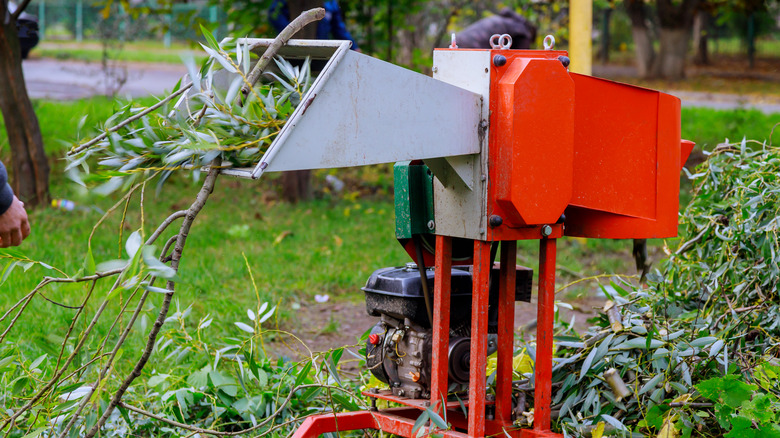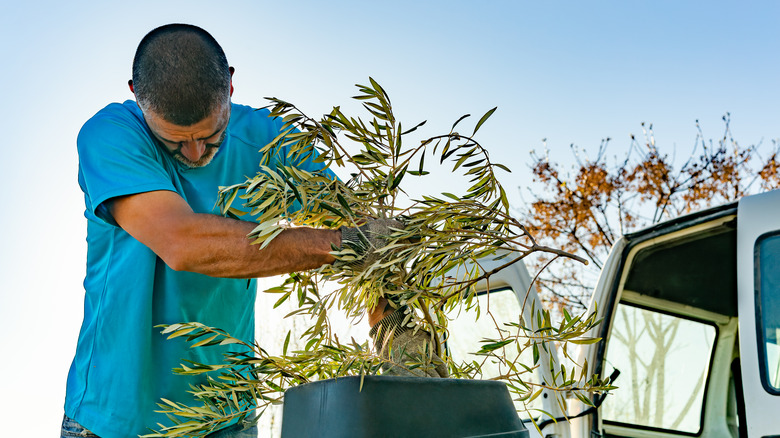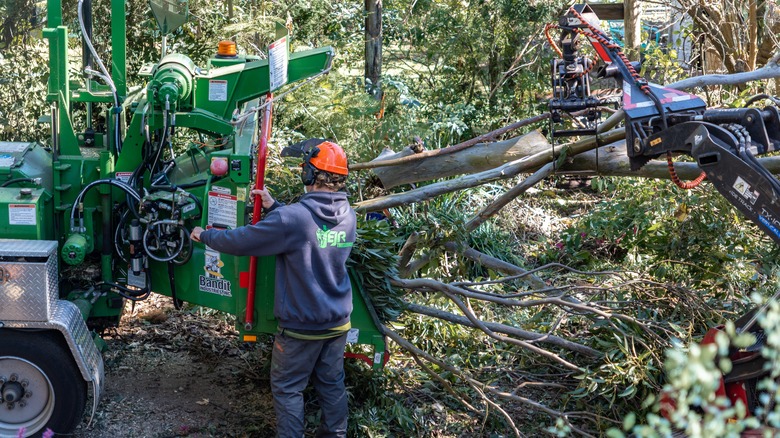Tree Shredders Vs Wood Chippers: Which Is The Right Tool For Your Lawn Care Needs?
Keeping your lawn clean and well-maintained often means dealing with fallen branches, piles of leaves, and tree trimmings. If you find yourself constantly upkeeping green waste, then you've probably considered investing in a tool to help with the job. Tree shredders and wood chippers are both effective options, but how do you know which one is right for your needs? They both can help you turn garden waste into mulch, compost material, or simply make disposal easier, but they do so in different ways.
Both tree shredders and wood chippers are designed to reduce the size of branches, twigs, and other garden waste, making them easier to handle. But there are subtle differences between the two. A tree shredder is typically used for processing soft, leafy materials and small branches into mulch or to make a DIY compost. It's a great option for people who are frequently pruning shrubs or hedges.
On the other hand, wood chippers are built for more heavy-duty tasks. They're powerful machines designed to chop larger branches and even small trees into wood chips, making them ideal for homeowners who regularly deal with large tree limbs or manage properties with significant tree coverage. Neither of these machines is necessarily "better" than the other — what matters most is your specific needs. Let's explore both options below.
Tree shredders: pros and cons
Tree shredders are great for smaller jobs and softer materials, making them a solid choice for homeowners who live in suburban areas and deal with regular yard maintenance. If your yard has a lot of small plants, bushes, and shrubs, a tree shredder can be very beneficial. One of the best things about a tree shredder is its ability to create fine mulch from softer materials like leaves, twigs, and smaller branches. The mulch is perfect to use in garden beds, providing excellent ground cover for retaining moisture and suppressing weeds. A tree shredder can also help turn your garden waste into compost material, which you can later use to enrich your garden soil.
Another benefit of tree shredders is that they are typically quieter than wood chippers. This makes them a better choice for residential areas where you want to keep noise to a minimum. Being lighter and more compact, they are also easier to handle and move around your yard. Maintenance and costs of a tree shredder are typically lower, making them more budget-friendly for homeowners who don't need a heavy-duty solution. However, the downside of a tree shredder is its limited capacity. It can handle twigs, leaves, and smaller branches, but anything larger than a couple of inches in diameter will likely jam the machine or be too difficult to shred effectively. If you frequently deal with larger branches or hardwoods, a tree shredder may not be powerful enough to get the job done.
Wood chippers: pros and cons
Wood chippers are the go-to tool for heavy-duty jobs, capable of handling larger branches and even entire trees. If you have older trees in your yard, or if you need to clear out large amounts of debris, then a wood chipper can help you make quick work of thick limbs and dense materials. One of the biggest advantages of a wood chipper is the amount of power it has. It can process much larger materials than a tree shredder and the chips produced are larger and coarser than the fine mulch from a shredder, which may be ideal for landscaping.
However, there are some trade-offs to consider. Wood chippers are generally louder, which can be a problem in noise-sensitive neighborhoods. They're also bulkier and heavier than shredders, so they require more effort to maneuver around your yard. Additionally, wood chippers tend to be more expensive, both in terms of purchase price and ongoing maintenance. If you aren't dealing with large branches or trees on a consistent basis, then the added cost and bulk of renting or buying a wood chipper probably won't be worth it.


